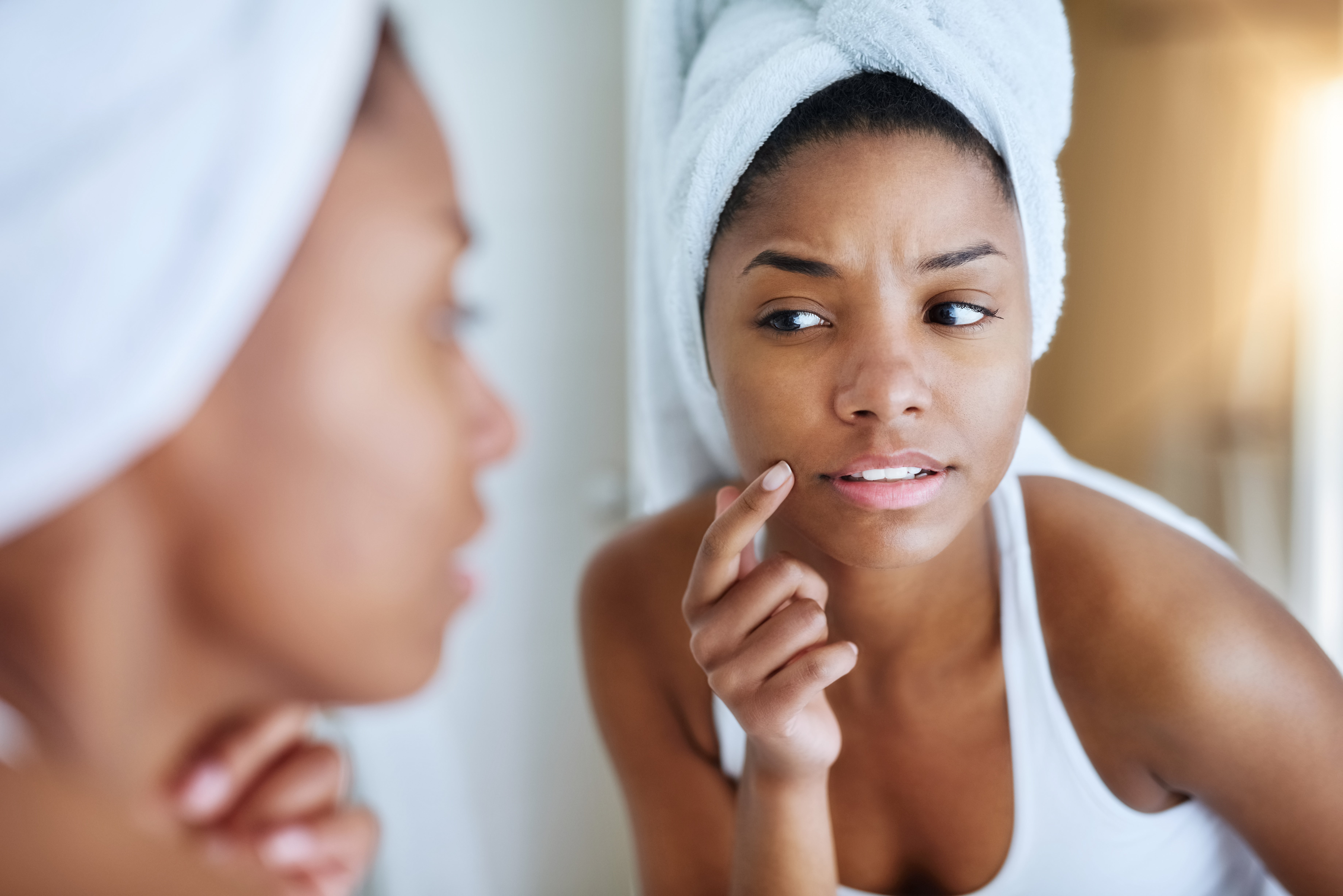
Acne. It happens to the best of us, even for adults who are well past their pubescent years and to celebrities whose skin always seems to look flawless. But no one, regardless of age, fame or stature, is above a few pimples. Some people, however, suffer from a severe form of acne that goes beyond the average breakout or blackhead—and it’s called cystic acne.
As described by Rebecca Lee, a New York City-based registered nurse and the founder of the natural health resource, Remedies For Me, cystic acne is a painful form of acne with large, visible and inflamed bumps that start from deep within the skin.
“Cystic acne is caused by pores that become blocked by dead skin cells, bacteria and excessive sebum production,” Lee tells ESSENCE. “This blockage can cause infections, leading to cystic acne with blackheads and whiteheads. Cystic acne can also be caused by genetics, lifestyle choices and hormonal imbalances.”
And those of us who are highly melanated we’re at an even greater risk when it comes to cystic acne.
Dr. William Kwan, ethnic skin care expert and dermatologist of Kwan Dermatology in Union Square in San Francisco, says that “oilier skin types can also contribute to acne and many of my darker skin-toned patients are oilier,” he says.
While acne is never welcome, it’s the scarring it leaves behind that’s worst. Known as hyperpigmentation, the dark marks the discoloration left by the acne can persist. Though acne is a common skin condition, it can have detrimental effects on our self-esteem and confidence.
And while the verdict is out on the efficacy of some at home acne remedies, we asked the experts for affordable and less invasive forms of treatment. Below are their recommendations on simple changes you can make to your lifestyle and diet to eliminate the adverse effects of cystic acne and scarring.
1. Tea Tree Oil: Tea tree oil has antioxidant and anti-inflammatory properties. According to Lee’s research, tea tree oil exhibits broad-spectrum antimicrobial activity against bacterial, viral and fungal skin infections.
2. Green Tea: Interestingly, green tea seems to improve acne whether taken orally or used topically,” Lee shared.
3. Probiotics: Often nicknamed the good bacteria, probiotics aid in healthy digestion and their antimicrobial properties may even help to improve the health of your skin, eliminate toxins and reduce chronic inflammation.
4. Zinc: “The immune system responds to acne bacteria by producing inflammation around hair follicles and sebaceous glands in the skin,” explained Lee. “This inflammation leads to the redness and swelling characteristic of pimples. Research has shown that a zinc deficiency causes elevated inflammation in response to bacterial infection. Oral zinc supplementation can help to regulate the immune system and control inflammation, reducing the frequency and severity of acne outbreaks.”
5. Aloe Vera: Though Lee stressed that aloe vera doesn’t necessarily prevent acne outbreaks, the soothing ointment can, however, speed up the healing process of acne lesions.
As far as lifestyle and diet habits you can implement in your daily routine to reduce breakouts, Lee recommended reducing your stress level, so as not to exacerbate acne symptoms before and during menstruation. She also suggests eating healthy fats to balance out your hormones and decrease inflammation.
Lastly, make sure to apply sunscreen daily to reduce dark spots, cleansing your skin regularly, and removing makeup before going to bed. For some, replacing your intake of dietary nonfat milk with whole fat milk and eating foods that are low in sugar has also delivered major results.




